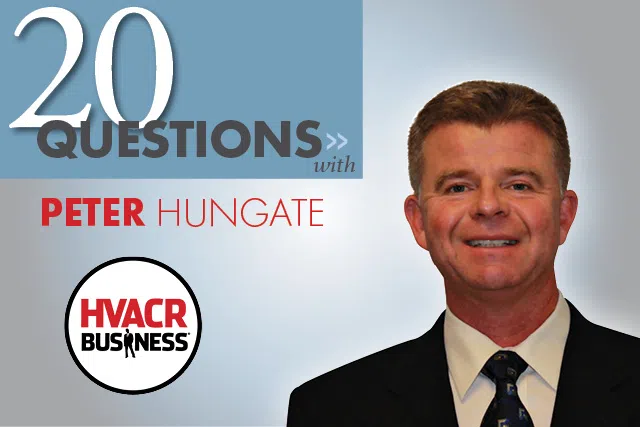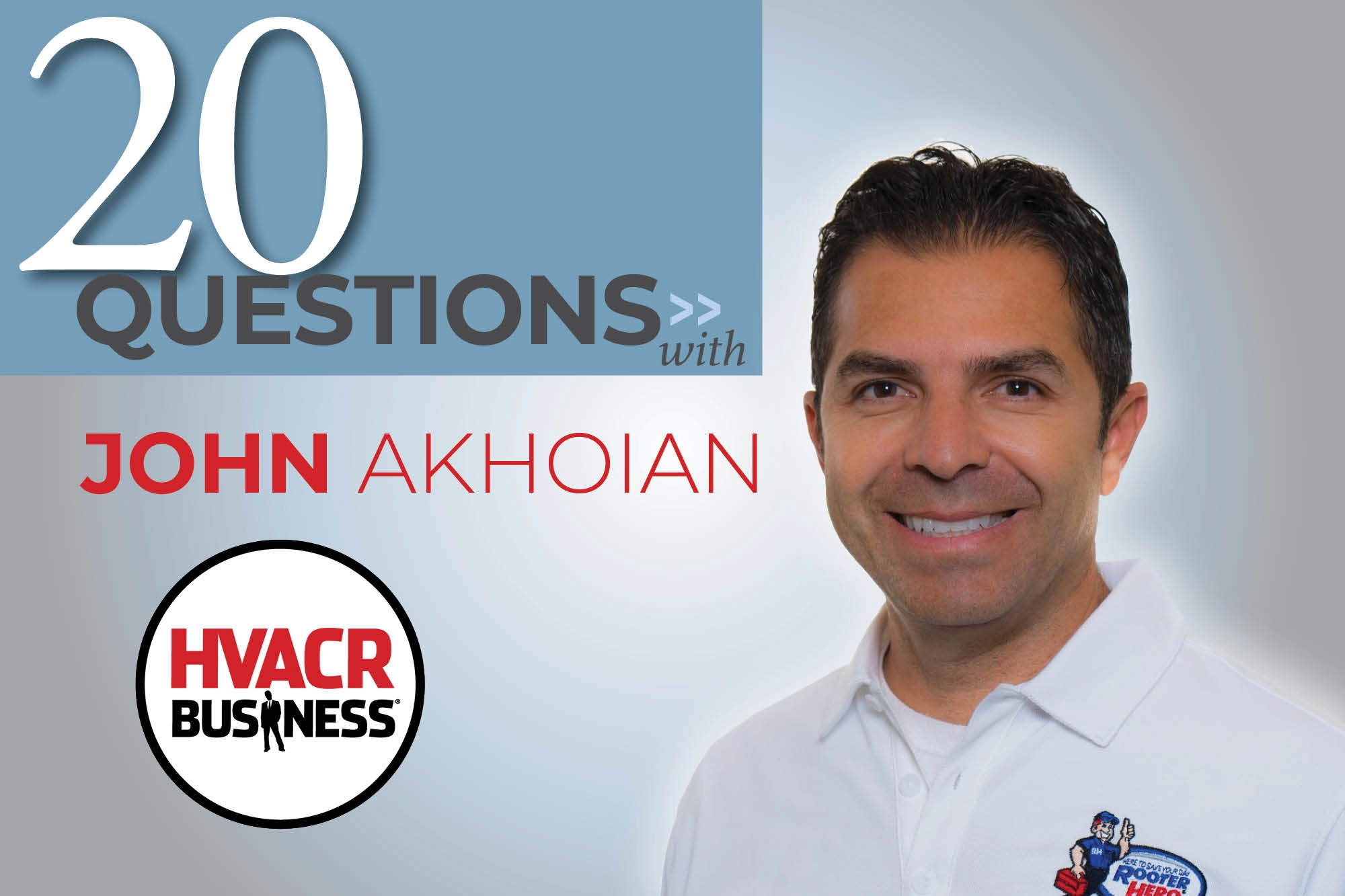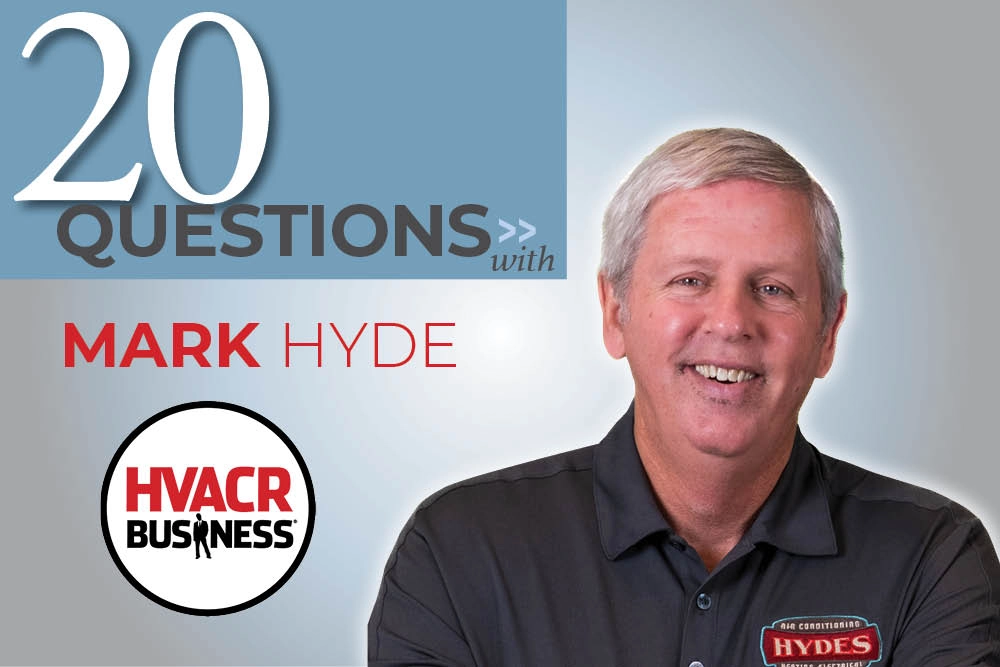HVACR Business Publisher Terry Tanker met with Peter Hungate, owner of Pacific Air Systems in Tacoma, WA,
one of HVACR Business’ 2013 Tops-In-Trucks winners. The two discussed business processes, ordering fleet vehicles, mentors, customer service and giving up company control in order to grow.
1. What’s the history of Pacific Air Systems?
A partner and I purchased the business in 1991. We had five employees. I focused on sales and he was operations. New construction was going great which was nice, but I wanted to develop our service business for a stronger, more stable foundation. We disagreed on this, so I bought him out.
2. What were you doing before you acquired Pacific Air Systems?
I entered the industry in 1983 working for the local Carrier distributor. It became clear to me that there was a huge opportunity in contracting. So, I went to work for a contractor to learn as much as I could before buying Pacific Air Systems.
3. Can you give me a business snapshot?
We maintain 1,000 light commercial systems, have 6,500 residential service contracts and about 10,000 active customers. A large percentage of our techs are NATE-certified, and to ensure a professional look we provide uniforms to everyone. To ensure quality service we provide lots of training. Our hottest selling product right now is Diaken’s mini split.
4. Congratulations on being one of our 2013 Tops-In-Trucks winners. Why did you go through a redesign?
We wanted to re-brand the company and our image.
5. How many vehicles do you buy each year?
We just placed an order for 11 of the new Nissan NV200s. We’re changing out an equal number of Chevy vans. We’ll effectively cut our gas mileage in half. We’re excited about that. Generally, we keep vehicles for four years. Once they hit the 100,000 mile point, they’re replaced. We’ve experimented with keeping them longer, but maintenance goes way up, so we decided that four years is the perfect time to change out a vehicle.
6. How do you buy them?
We go through Enterprise Fleet Services, which has just been fantastic in partnering with us on our vehicle acquisitions and disposal. They were able to place an order factory direct. They’ve been a great partner for us.
7. What’s been the most challenging management crisis you’ve dealt with?
We experienced phenomenal success in the early 2000’s, and then the recession hit in 2008. Our revenues plummeted 25 percent. It was a very difficult period to manage through.
8. What’s your definition of business success?
It’s always been that it’s got to be a win, win, win situation. Win for customers and win for coworkers. If those two are winning, the company is winning, and that’s my definition of business success.
9. What excites you about going into the office?
Hearing about my co-workers’ success. Sales success, solving customer problems, or when a customer is telling me how happy they are with our service.
10. What’s your strongest management skill?
I’m really a process-oriented person, and I like to focus on managing them. If there isn’t a process for something, I like to create one, get it into place and make sure we’re following it. If the process needs improvement, we improve it until we get good, consistent performance. That’s also a great way to hold team members accountable.
11. Were you trained in this skill?
Over the years, I’ve taken classes and read a lot. I read the book The eMyth about 20 years ago. That really got me thinking that you need strong processes to grow and to build on.
12. What is your management philosophy?
As we’ve been discussing, I’m a process manager. I have high standards, and our team doesn’t always meet those standards. Neither do I. Processes establish performance standards, and that’s why I’m always eager to improve them. They just make us better.
13. Are you working on any special projects this year?
Yes. In the past, I’ve always been the general manager and the sales manager. This year, I promoted two people from within for those responsibilities. I’m not involved with the day-to-day management. This was very hard for me to do, but we’ve had excellent results so far. Revenues are up 17 percent.
14. What was the impetus for the change?
We joined AirTime500 last year. One of the trainers – Jim Nichols – worked with us and suggested the change in structure.
15. How did you make the decision to join AirTime500?
We had joined Contractor Success Group, which is part of the Service Experts Organization, back in 1999. When they were bought out, we went off on our own. But the last few years things haven’t been as crisp. I went to one of their Profit Day meetings and decided to join.
16. What is your focus now with new managers in place?
I’m focused on keeping my hands off and making sure I provide whatever support they need. However, I will intentionally stay away from the office so I’m not falling on old habits and micromanaging.
17. It sounds like you may have some time to kill. What do you do for fun?
Boating. We’re really lucky to live in the Northwest, probably one of the best boating spots in the whole world.
18. Who was your mentor?
Ron Smith without question. But indirectly, since I’ve never worked with him. I prescribe to everything he’s done, taught and written about. I’ve been to his seminars. I’ve learned everything from him. He’s got the blueprint for success. I just can’t say enough good things about him.
19. What’s the one lesson you had to learn the hard way?
[Laughing] There’s been several, but letting go of control tops the list. Those in charge really care about our customers, co-workers and company. We’re in good hands. I should have done it a long time ago. Better late than never.
20. What’s the most unusual request you’ve had recently?
[Laughs] We replaced a water heater, and one of the high quality water flexes we’d installed sprung a leak. Over a period of time, it had damaged some sheet rock. Even though everything was out of warranty, the customer wanted us to repair their sheet rock, texture it and paint it. It was over the top, but we fixed it and chalked it up to a good customer service story
Terry has over 23 years of experience in the advertising and publishing industries. He began his career with a business-to-business advertising agency. Prior to forming Hutchinson Tanker Ltd. and HVACR Business in January 2006, he spent 20 years with large national publishing and media firm where he was the publisher of several titles in the mechanical systems marketplace.
In addition to his experience in advertising and publishing, Terry has worked closely with numerous industry-related associations over the years including AHRI, AMCA, and ABMA. He has also served on the Board of Directors for the American Boiler Manufactures Association (ABMA) and as chairman, for both the Associates Committee and the Marketing Communications Committee of ABMA.






